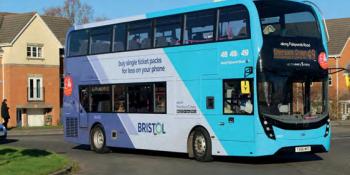Civil rights campaigner Roy Hackett led a movement in the 1960s against a racist hiring policy at Bristol Omnibus Company. MARTIN CURTIS recounts the events and the campaign’s lasting impact
Roy Hackett, the civil rights campaigner of Bristol, died in early August aged 93. He sailed from Jamaica in the early 1950s and soon after arriving in England, moved to Bristol. He was among a small group of black men, among whom were those seeking to work in the city as bus drivers and conductors, having never seen double-decker buses before.
The first of this group applied, only to find that the state-owned Bristol Omnibus Company had a policy of employing only white crews. This was in stark contrast to London Transport, which had actively recruited from the Caribbean since the 1950s.
As a result, Hackett was among those who headed a bus boycott and a series of protest marches in Bristol during 1963, which ultimately changed British society with the introduction of the Race Relations Acts of 1965 and 1968 – causing such racism to be criminalised.
Prejudiced hiring
Hackett’s recent passing has received national media coverage and prompted his achievements to be remembered.
As he recalled in later life, racial prej…



